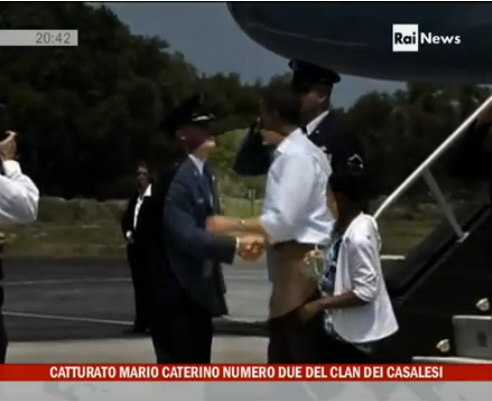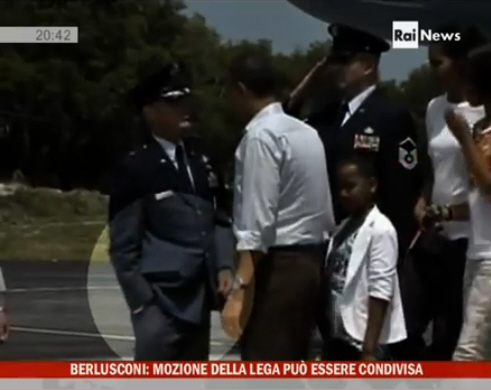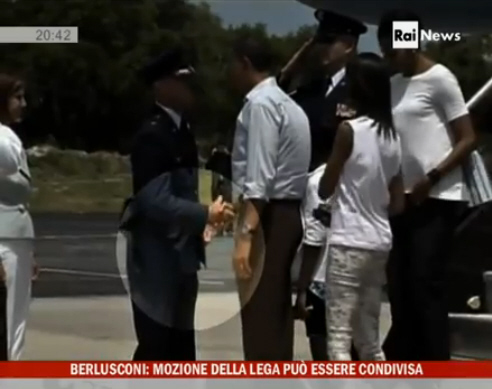We already know that secrecy was of paramount importance in Operation Neptune’s Spear. The US willingness to use Stealth Black Hawk helicopters during the Osama Bin Laden raid is a measure of the importance of a mission involving Special Forces, aircraft, ships, drones, satellites and who knows how many new/unknown technologies, deep inside a foreign country’s territory as if Pakistan was the worst American enemy.
As we know, President Barack Obama gave the go ahead to the operation on Apr. 29 at 08.20AM, in the Diplomatic Room, before leaving for Alabama. According to the reports, he had met his “national security adviser Thomas Donilon, counter-terrorism adviser John O Brennan, and other senior national security aides to go through the detailed plan to attack the compound and sign the formal orders authorising it”.
As Italian news station Rainews noticed, few hours later, as Obama arrived in Cape Canaveral, Florida, he quite “stealthily” gave a piece of paper to Air Force General Ed Wilson (Commander, 45th Space Wing, and Director, Eastern Range, Patrick AFB, Fla.) while they shook hands. Gen. Wilson, took another paper from his pocket and, in the same way, put it into the President’s palm.
Even if it is impossible to guess what kind of information they exchanged in such a weird manner, for sure the way the information was transferred as well as the timing of the episode raise some questions. Rainews Director Corradino Mineo ventured the suggestion that the exchanged information could be related to the OBL raid, demonstrating how keeping it confidential was the number one priority of US government.
Even if I find it intriguing, I think this would be a rather clumsy way to exchange secret orders or other intelligence information: in front of cameras and not, for example, during an extremely quick private meeting. Anyway, at the same time, I can’t completely rule out the possibility that those papers contained something as important as Operation Neptune’s Spear orders. However if “mission critical” information must be exchanged on paper to ensure confidentiality, maybe time’s arrived to review Net Centric Warfare doctrine and Joint Battlespace Infosphere concept (just to name but two) which are based on an integrated, secure, internetworked information flow…
[youtube=http://www.youtube.com/watch?v=F7VVLKVYr3Q]










